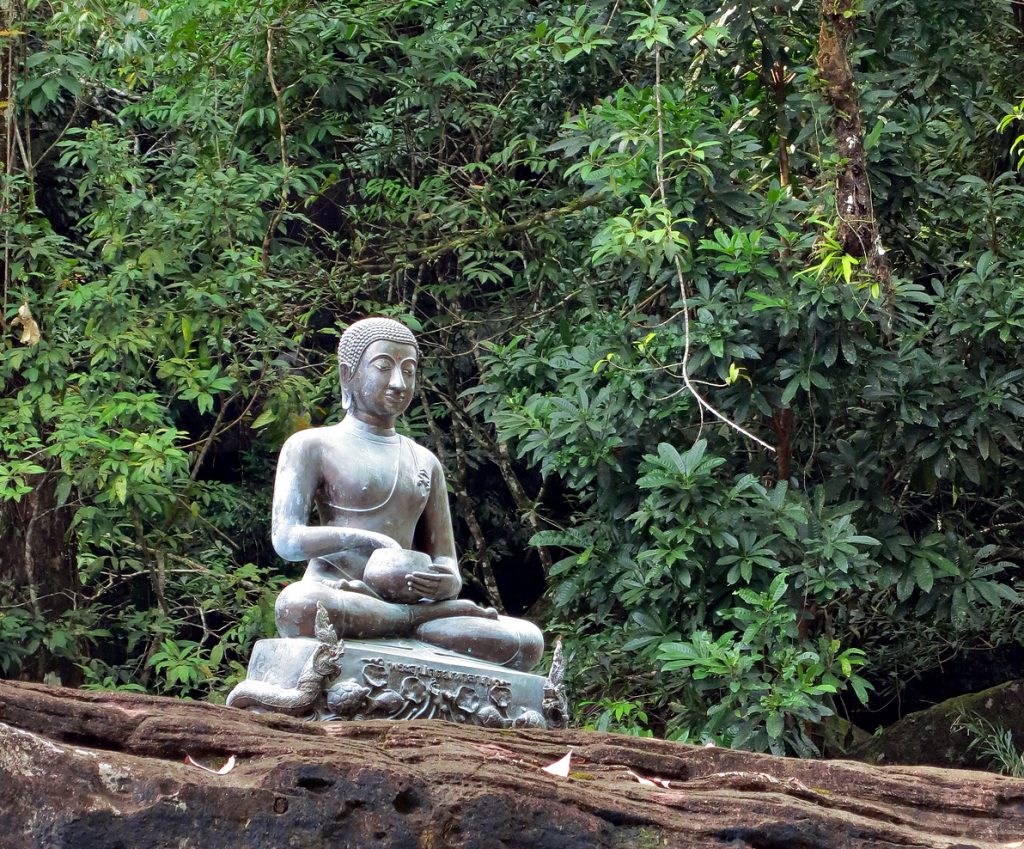What is Buddha-nature?

BY | Ven Dr Chang Qing
In Buddhism, the ultimate goal is to attain liberation and become a Buddha. The topic of “Buddha-nature” deals with whether one could become a Buddha, and is hence considered one of the most crucial concepts in Buddhism.
Most Buddhists think that as all beings possess Buddha-nature, all will naturally become a Buddha one day as long as they have faith in this phenomenon. It is only until we have attended courses and talks on Dharma, and have acquired some basic Dharma knowledge, would we understand the real meaning of “Buddha-nature”.
The real meaning of Buddha-nature
In Buddhism, “Buddha-nature” actually means that all beings harbour the potential for enlightenment. It is a rather complicated concept to appreciate.
Although there are numerous explanations, I am not discussing it at length here. Instead, I will give only a brief account, highlighting some of the issues that may be overlooked.
According to Liu Ming-Wood, the term “Buddha-nature” (佛性) is the Chinese translation of a number of closely related Sanskrit terms, notably “Buddhadhatu” (Buddha-realm), “Buddhagotra” (Buddha-lineage), “Buddhagarbha” (Buddha-embryo) and “Tathagata-garbha” (Tathagata-embryo), and its connotation varies with the context. (Madhyamaka Thought in China, p.160)
The Ta-pan-nieh-p’an Ching proclaimed that all beings universally possess “Buddha-nature”. Nonetheless, it does not translate that having “Buddha-nature” will definitely make one a Buddha. This view should be considered from the perspective of “nature of effect” (果性). However, we should treat the term “nature” (性) as a “direct cause” (正因) and thereby explain the “Buddha-nature” from this perspective.
Capacity for enlightenment — all sentient beings have the potential to realise Buddhahood. Generally speaking, based on the Nieh-p’an-ching’s explanation, the term “Buddha-nature” seems rather mythical. Nevertheless, this is not as hopeless as it sounds. According to William G. Grasmick,
These mythic conceptions are of great value in human life; they provide a shared framework for making intellectual and moral sense of nearly every aspect of reality, whether it be occurrences in the natural work, events of human history, or the more personal happenings of an individual’s life. (See his article “Buddha Nature as Myth” in the book Buddha Nature ed. Paul J. Griffiths and John P.Keenan, p65).
If some has not heard of this teaching,
He may, out of cowardice or sense of inferiority Blame himself for all sorts of failings
So that the aspiration for enlightenment never arises in him.
(Taisho 31, 840C13-16)
Hence, it is remarkable to note that one could derive real power from the thought that one possesses “Buddha-nature”. Thus it is mindful to say, one should put one’s faith in “Buddha-nature” and then cultivate it through following Buddhist practices in order to bring forth wisdom and thereby progress towards the ultimate goal of enlightenment. In this regard, He also claimed that the real significance of the statement, “all beings universally possess Buddha-nature” lies in the sense that the proclamation can convey hope and confidence that are so desperately needed by people who have lost the notion of a meaningful life. (ibid., p71)
In other words, this statement imparts confidence and faith to sentient beings. This is not only important but also a requirement for religion.
It is vital to note that one must have faith in “Buddha-nature” from the very beginning so as to build up one’s confidence and to progress forward.
For example, the Ratnagotravibhaga responded to the question, “Why has the Buddha declared that the essence of Buddha (Buddhadhatu) ‘exists’ in every living being?” (Taisho 31, 84ob29-c1) by saying: “Buddha-nature” actually encompasses the ideas of “faith” (信) and “wisdom” (智). These two elements are the cores of Buddhism. In other words, the implication of “Buddha-nature” is in accord with the theory of Buddhism. In my opinion, “faith” can also be considered as “principle” (理) and “wisdom” can also be treated as “practice” (行). Buddhism is not only underpinned by faith, but also by wisdom. Similarly, “Buddha-nature” not only focuses on faith, but also enables one to practise the Dharma through imparting confidence in order that one may generate wisdom.
In the Ta-cheng Hsiian-lun, Chi-tsang writes:
If one knows wisdom, that means one also knows
“Buddha-nature”. If one knows “Buddha-nature”, that means one also knows Nirvana. (Taisho 45, 37c9- 10).
According to my understanding, Chi-tsang implied that wisdom arises from “Buddha-nature” through one’s cultivation, once one has realised that there is the capacity for enlightenment. Likewise, one will comprehend Nirvana once he has understood the concept of “Buddha-nature” and has then generated wisdom through practising the Dharma towards liberation — Nirvana. Although Chi-tsang did not mention faith in this context, as far as I am concerned, “Buddha-nature” also encompasses faith in order that one may cultivate wisdom further. Hence, the relationship between all these concepts could be outlined as below:
Faith > Buddha-nature > Wisdom > Nirvana
All in all, the correct concept of “Buddha-nature” is that it depends on one’s need to cultivate wisdom besides having faith. It is worth noting that even if one possesses “Buddha-nature”, that does not mean that one will definitely become a Buddha without practising Dharma. Hence “Buddha-nature” is soteriological rather than theoretical. Finally, let us achieve faith in “Buddha-nature” as the first step and then nurture wisdom in order to proceed towards the final goal – Buddhahood. Otherwise, with faith but without wisdom one can never be enlightened.
Certainly, to practise Buddhism in this mundane world is never an easy task. We may encounter many hurdles that will impede us in our practice. However, by having “Buddha-nature” together with persistent and conscientious Dharma practice, we will feel happier and more contented in our present life, and eventually accomplish the goal of enlightenment.

